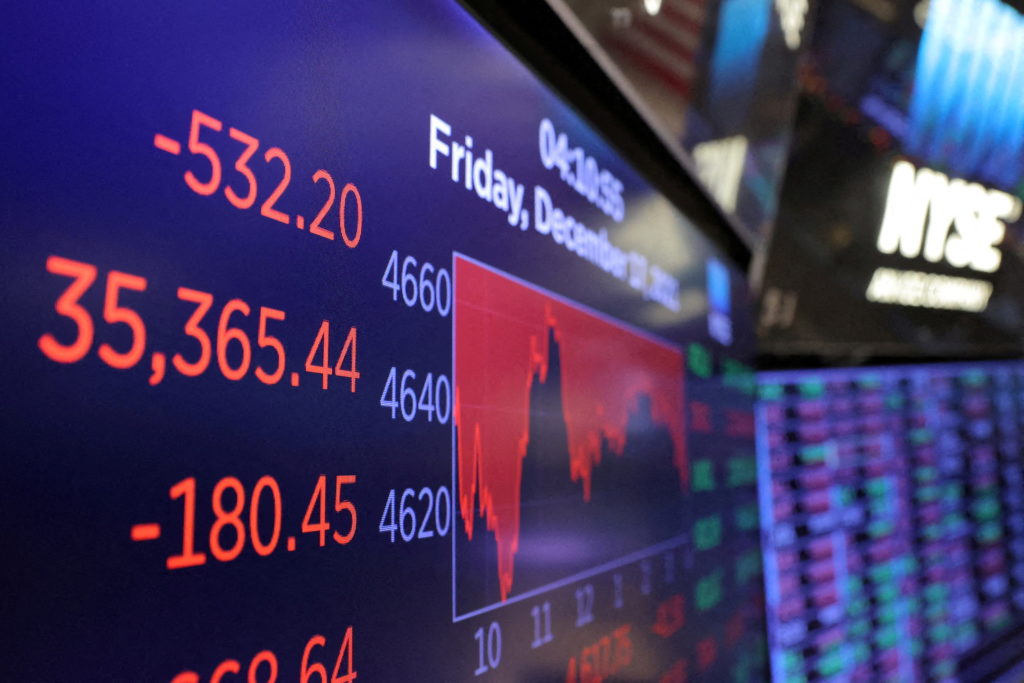Get your money back from Stock Market Scams
Recover your Money
If you’ve been ripped off by scammers, get in touch and our team of experts will work to get your money back
Stock Trading Scams: Recover Your Lost Funds

How does the stock market work?
Stock markets are a form of centralized exchange where investors buy and sell ownership (stocks) of various companies. Most stock markets worldwide are highly regulated and involve legal, nationally registered, and regulated brokers to facilitate the transfer of stock from a seller to a buyer.
Examples of regulated stock exchanges are the US-based NYSE (New York Stock Exchange) and the NASDAQ (National Association of Securities Dealers Automated Quotations). Our ability to access the stock market has never been more effortless, and the barriers to entry continue to fall every year.
But this ease of access is not without its dangers. We are all susceptible to different types of investment scams in the investment and stock world, so it is incumbent on us to do our due diligence and protect ourselves and our money from becoming victims of stock fraud and stock scams.


Is the stock market rigged?
One of the biggest questions and, for many, beliefs about the stock market is that it is rigged. Is it? The US’s stock markets are regulated by various government and non-government entities such as the SEC (Securities and Exchange Commission) and FINRA (Financial Industry Regulatory Authority). Both the SEC and FINRA have overlapping legal responsibilities that monitor the stock exchanges and the various brokers that facilitate the buying and selling of stocks. However, that doesn’t mean we can avoid all fraud and scams.
Current and past companies intentionally deceive individual investors and/or participate in illegal accounting and business practices, such as ENRON and Valeant Pharmaceuticals. Some fraudulent individuals create ‘too good to be true’ advertisements that result in Ponzi schemes – the worst actor in history being Bernie Madoff.
You even have regulated online stock brokers that do not practice their fiduciary responsibilities on behalf of their clients – a most recent example would be Robinhood during the early 2022 GameStop debacle. While there are obvious risks in the stock market and plenty of people looking to take advantage of you, the overwhelming and vast majority of brokers and exchanges operate in a legitimate, ethical and legal way.
Types of Securities fraud
Ponzi Schemes
Perhaps the most well-known version of a stock fraud scheme in history is a Ponzi scheme. A Ponzi scheme involves paying investment profits to old investors with the deposits of new investors. When a new investor joins the system, it is most often at the advice of another investor unknowingly part of the Ponzi scheme. What makes Ponzi schemes so successful is the perceived legitimacy and history of returns. Ponzi schemes can exist for years or even decades.
In the case of Bernie Madoff, his Ponzi scheme and fraud empire lasted for over 20 years. He was so successful at this fraud that his firm even became one of the leading market makers of the stock market, and he was a former chairman of the NASDAQ! Ponzi schemes eventually fail because there is never enough new investor money to keep paying off old investors. Some of the keywords or phrases with a Ponzi scheme are ‘guaranteed income,’ ‘offshore investment,’ ‘small, private hedge fund,’ ‘secret invite-only fund,’ or any other form of ‘too good to be true’ sales pitch.
Penny Stock Scams
Pump and Dump
Pump and Dump (sometimes referred to as P&Ds) scams are perhaps one of the classic and persistent forms of stock fraud that exist. What makes pump and dump scams challenging to detect is that they can often be done in a legitimate fashion. A pump and dump is essentially an event where you are targeted to buy a stock. The stock is sometimes referred to as a ‘multi-bagger,’ indicating a massive return on investment. You may also read about how the stock is an emerging leader in its sector/industry, how it could be the next Apple or Amazon.
The stocks used in pump and dump are often publicly traded and listed on a regulated exchange like the NASDAQ and bought through a regulated stockbroker. The stock price is almost always between $1.00 to $10.00; how a pump and dump works is straightforward. The scammers purchase the cheap stock early then begins to campaign on its behalf and drum up support and enthusiasm. As new investors buy, the price starts to spike up and accelerate – it is at that point the originators of the scam sell and exit their positions at a significant profit and at the expense of yourself and everyone else who bought too late.
Signal Providers
Can you get your money back from after a stock scam?
If you have lost money due to a scam or fraud in the stock market, you have options. With the stock market so regulated and scrutinized, thankfully, there are ways for you to recover money. But the process is exhaustive and prohibitively challenging that many become frustrated and decide not to pursue monetary recovery.
At regal-resolve, we specialize in the recovery of funds due to fraudulent activity and stock market scams. We have experience in working with regulators and litigating against bad actors in the stock market space. Our representatives create an exhaustive and detailed analysis of what happened to you to determine the best way to get your money back. Then we assign a caseworker that focuses on your case throughout the process. We have a myriad of positive reviews and an extremely high positive expectancy rate in the field.

Stock scam and fraud FAQ
SEC Rule 10b-5 simply states that it is unlawful to commit fraud or deceit on anyone. This involves practices listed above, but it also includes untrue information and even information that is omitted. (see https://www.law.cornell.edu/cfr/text/17/240.10b-5)
When it comes to the stock market’s regulatory and legal side, few words are as broad in their definition and meaning as manipulation. Stocks are always manipulated by large and small entities in (mostly) legal and ethical ways – that is the stock market’s nature. But some forms of stock manipulation are illegal, like front running and naked short selling. Naked short selling is the shorting of a stock without borrowing the underlying stock to short. A recent example of this is the percentage of short interest in GameStop by hedge funds in early 2021 – hedge funds were short 130% of GameStop’s float. In other words, hedge funds had 30% more shares short than are available.
No, the stock market is not a pyramid scheme. Like those who run Ponzi schemes, some fraudsters run pyramid schemes – but the stock market itself is not a pyramid scheme.
Check out our website and complete the contact request form. An agent will reach out and work with you throughout the entire process.
